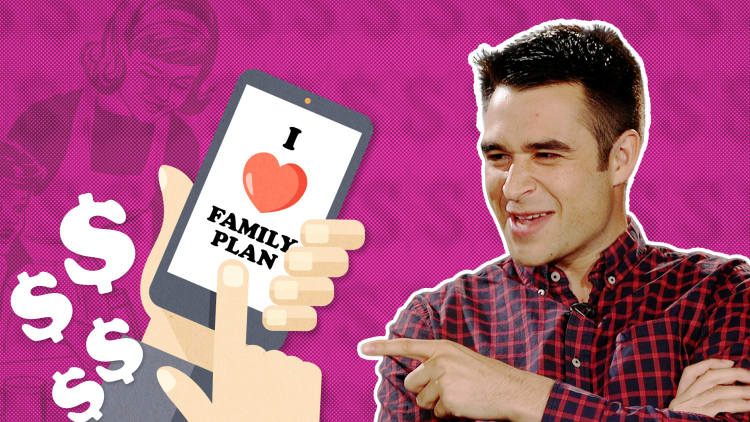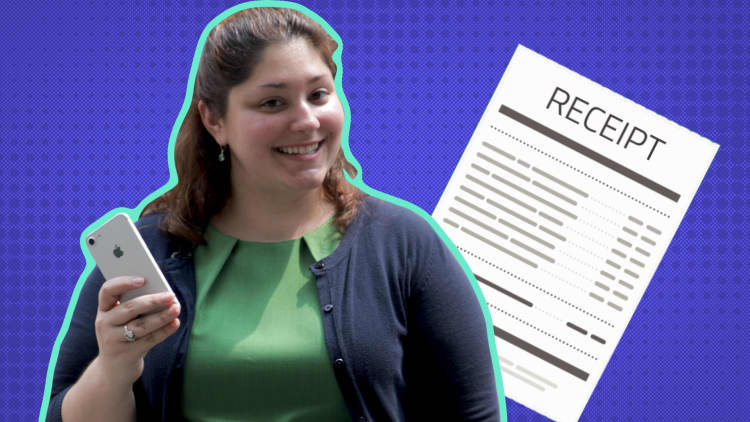The cost of a cell phone plan is dropping, but you may still be paying more than you need to, especially if you're with the big four: AT&T, Sprint, T-Mobile and Verizon.
Smaller and prepaid carriers such as Cricket, Boost and Metro PCS have upped their game in recent years and several of them have become good options. Especially for the price.
"Switching to a prepaid carrier can cut your monthly phone bill in half without sacrificing coverage," Christine Gallup, cell phone expert and founder of busygirltech.com, tells CNBC Make It. (On a prepaid plan, you pay at the beginning of the month, prior to receiving your service, whereas with a traditional or "postpaid" plan you pay at the end of the month.)
If you want to save some money on your phone bill, here are a few ways to get started.
Explore your options
If you're not bound by any payment plans, then you should look beyond the Big Four to save the most. Take AT&T, for example. Currently, the carrier is offering unlimited plans starting at $70 per month for a single line, as long as you sign up for autopay and paperless billing.
Cricket — which runs on AT&T's network — offers unlimited plans starting at $50 after the autopay discount. And, like many smaller carriers, Cricket's price includes taxes and fees, so there are no add-on costs when you get the monthly bill. By switching, you could save over $200 a year compared to the AT&T unlimited plan. And you typically can keep your old number too.
Only pay for the data you need
You might not actually need unlimited high speed data. Many people are pushed into the unlimited plans by the Big Four but, in fact, the average person uses about 5.8GB per month (though millennials use about 6.8GB), according to market research firm NPD Group.
"Check your own cell phone bill over the course of several months, find out your average data usage and, if you are using 5GB or less, stick with a fixed data amount plan that will most likely cost you less per month," Gallup says.
With a carrier like h2o — which runs off AT&T's network — you'd only pay $40 a month for a plan with 8GB of high-speed data. That option could net you roughly $360 in savings every year.
Or you could go with the new Unreal Mobile, a spinoff of FreedomPop. They run off the Sprint network, and an AT&T network option is in the works for later this summer, according to a spokeswoman. An unlimited plan with Unreal starts at just $10 a month, although high speed data is capped at 1 GB, and after that speeds are much slower. At that price, you could be saving over $700 annually once you factor in taxes and fees.
Go prepaid
If you're really hesitant to switch to a budget carrier, consider at least changing your plan to a prepaid one at your current provider that doesn't charge all of the taxes and fees. The Tax Foundation found that, in 2017, taxes, fees and surcharges made up a whopping 18.5 percent of the average customer's wireless bill.
If you move to a prepaid plan, you typically avoid paying many of these fees. AT&T has a prepaid unlimited plan starting at $55 per month for one line and Sprint has a $60 prepaid unlimited plan. Meanwhile T-Mobile and Verizon offer prepaid unlimited plans for $75 a month — which means you could save up to approximately $14 a month compared to their similarly priced postpaid unlimited plans.
At the very least, there will be no surprise costs. "Since you pay for your service upfront, you don’t have to worry about overages or other extra charges sneaking on to your monthly bill," Gallup says.
Things to consider
Competitors like Cricket, Boost Mobile and MetroPCS rent bandwidth on the networks owned the Big Four, so they say they can provide comparable call quality and speeds at lower prices. The networks are not exactly the same, though. At many of these smaller carriers, there are fine print restrictions noting that your data speeds may be slowed during times of high usage. And some smaller carriers only provide local accessibility.
If data speeds and call quality are the most important factors to you, it may be worth it to pay more to stay at one of the Big Four. To see the differences between the carriers, RootMetrics and OpenSignal have maps where you can compare providers' network quality.
And even if you are open to switching, make sure to check your current plan. You may not be on a contract for your cell phone service but, if you bought the latest iPhone or Samsung Galaxy phone through your carrier, you could still be on the hook for the remaining balance. In that case, it might make sense to wait until the phone is paid off before making a move.
"Keep an eye out, though: Sometimes your new carrier will pay your early termination fee when you switch," Gallup says.
That said, Gallup adds, "it's always important to read the fine print. Some great prepaid options offer a super cheap deal, yet have some features removed (i.e., mobile hot spots) or offer slower data speeds to make them cheaper."
Don't miss: I joined a family plan with a friend I hardly ever see, and it saves me $500 a year
Like this story? Subscribe to CNBC Make It on YouTube!




